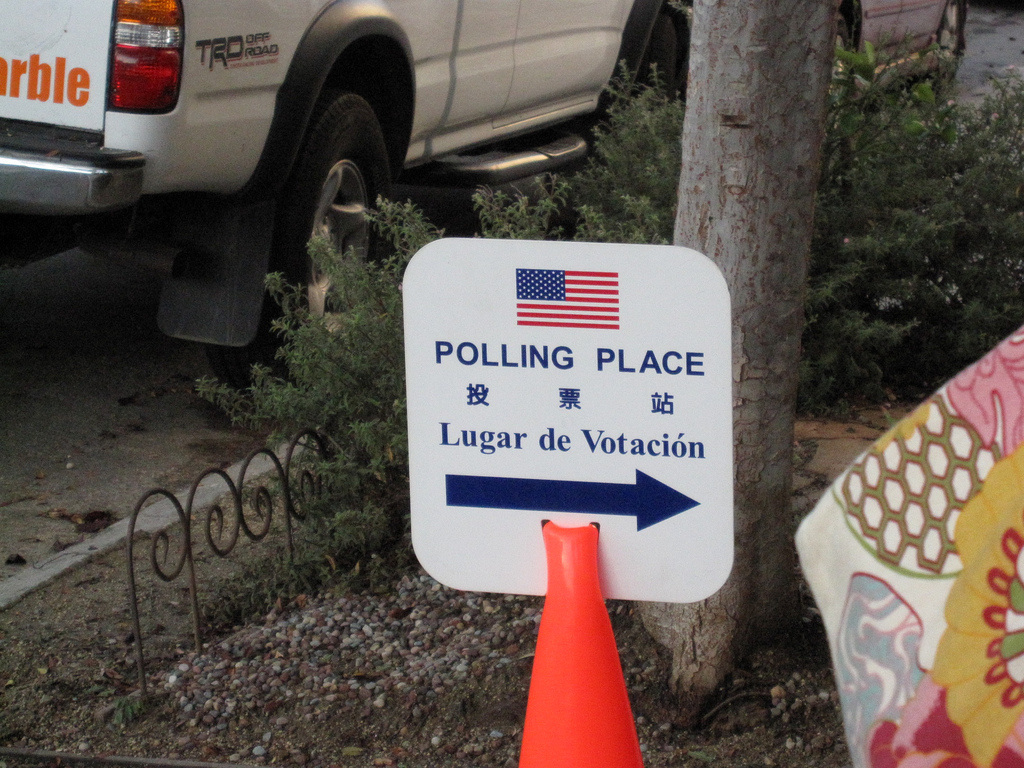| I had to wait about 15 minutes to cast my ballot Tuesday morning. I took that as a good sign, but in truth it was probably a false indicator. As I write this, not one single ballot has been tabulated, but I can make a fairly safe prediction: Voter turnout in Utah will be dismal. The website Wallethub.com confirmed recently what people here have been noticing for years. Polling locations in the Beehive State end up with a big surplus of unused “I voted” stickers at the end |
| | of the day. Whatever we like to think about universal civic engagement in this state, it’s just a nostalgic childhood memory for those of us of a certain age. Wallethub ranks Utah as the fifth least politically engaged of all states and the District of Columbia, using measures that go beyond voter turnout to things such as political contributions. Which leads me to wonder, would it be better if you were led to the polls with a gun to your head? I probably should rephrase that. Local gun enthusiasts would probably just shoot back. I’m referring to a figurative gun, such as the one government wields to make you pay taxes or register your car. I’m talking about what Australia has done since 1924, which is to require everyone to show up at the polls or face a fine. This is more than just a far-fetched idea. While far from becoming a reality, some pundits have begun talking about it. In Australia, you face a $20 fine if you don’t cast a ballot. Then you face another $170 plus court costs and a criminal record if you ignore that. Not surprisingly, turnout there averages around 95 percent, but at what cost? CNN recently invited some political experts to speculate as to how elections here would change if voting were required by law. One, William Galston of the Brookings Institution, said James Madison would smile from above. Galston imagines an election in which “citizens with less intense partisan and ideological commitments flooded into the electorate.” He sees this translating into greater cooperation in Congress as a broader voting base would reject partisan extremes. Democratic strategist Donna Brazile echoed some of those themes and said it would “sink the role of big money in our elections.” It also would end the idea that “less than half of the American electorate gets to decide which party will control Congress.” “We require jury attendance, paying taxes, and public education attendance because those are also essential functions. Is voting less important?” That’s it! Let’s make voting as popular as taxes and jury duty! I have no idea why voter participation is so low in Utah. It certainly isn’t because voting is too hard or inaccessible. You can vote early or by mail. In five counties this year, you could register on Election Day, and the state’s voter I.D. law allows people to use just about anything as identification, just short of your dog responding to your name. But I know this — forcing Americans to do anything isn’t going to make that thing better. Rather than raise the level of debate or reduce money spent on elections, mandatory voting would lead to an increase in inane slogans and negative ads. After all, the people we force into the voting pool would be the ones who apparently aren’t interested enough to get involved on their own. They probably aren’t going to volunteer to watch hours of serious candidate debates on PBS. It’s common this time of year to hear people say something like, “If you don’t vote, you have no right to complain.” In actual fact, you do have a right to complain. It’s in the Constitution. I imagine a court would be quick to add that the act of not voting is constitutionally protected, as well, especially when someone stays home as a statement. It may not be good that so few people elect our representatives, but at least those who do vote take the time and effort necessary to make a decision. We need to keep looking for ways to get more people in on that fun, voluntarily. |


 RSS Feed
RSS Feed

